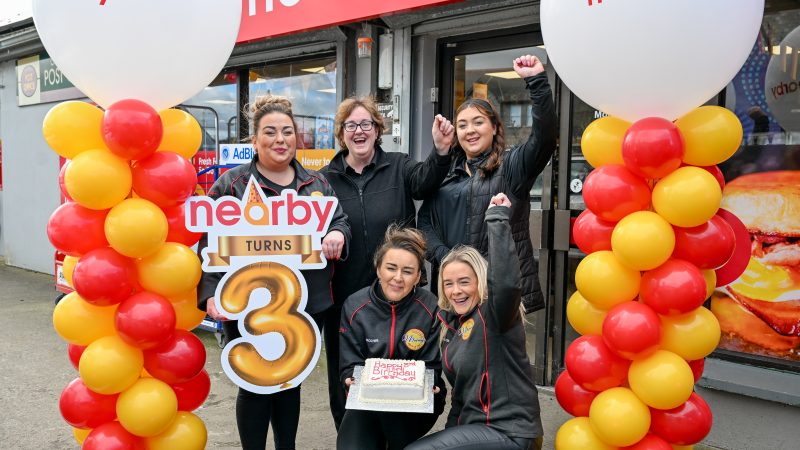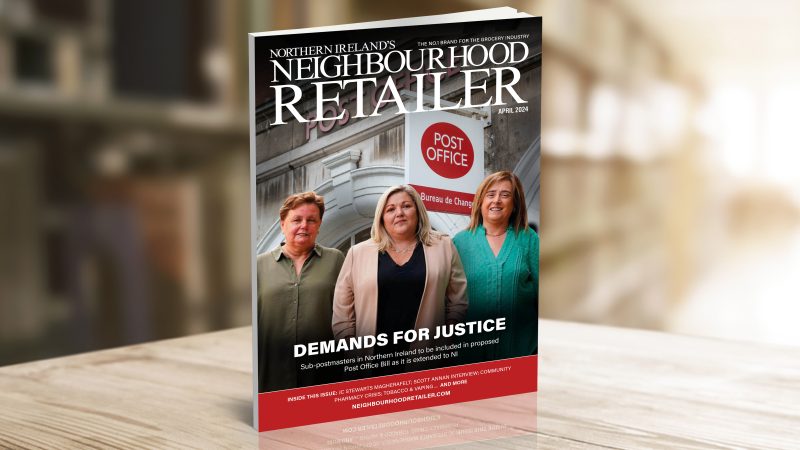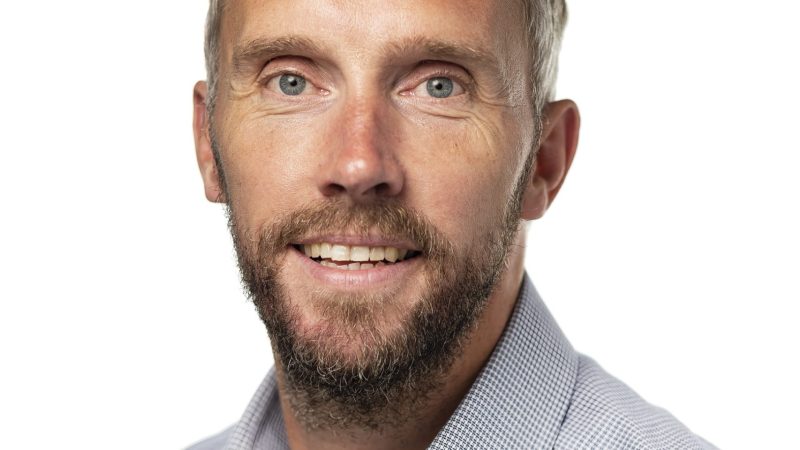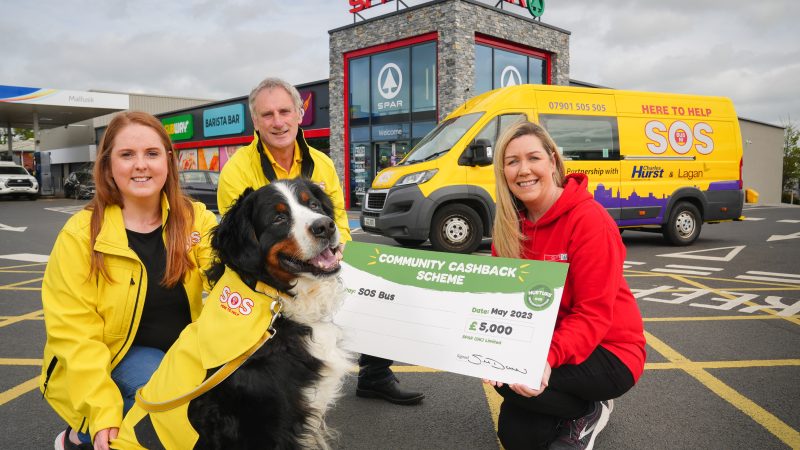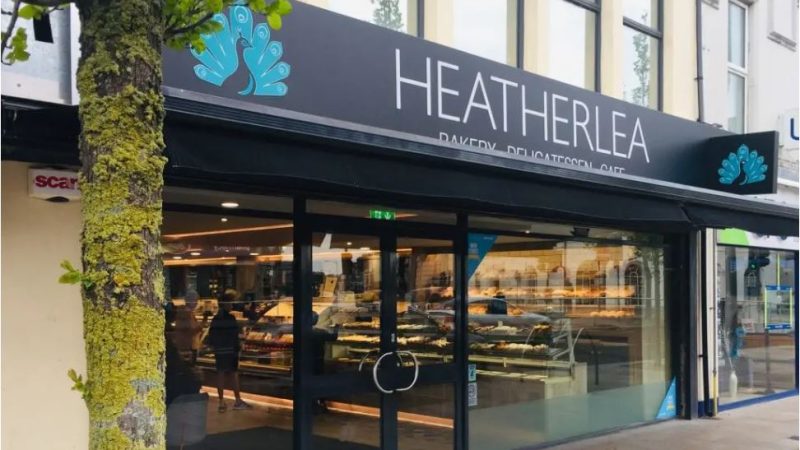Maxol – Building a new path to normal
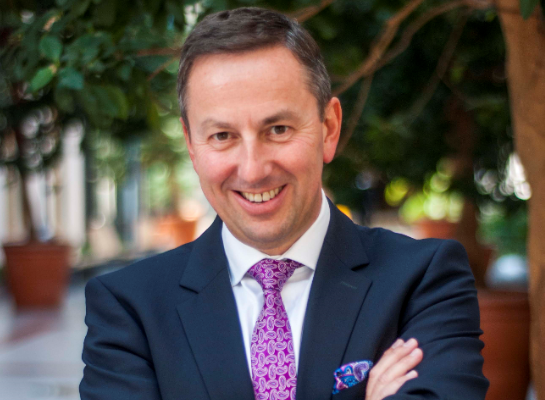
CEO of Maxol, Brian Donaldson, outlines how the brand has been innovating to adapt to the ‘new normal’.
When Neighbourhood Retailer last spoke to Brian Donaldson, CEO of one of Ireland’s largest fuel networks, spirits were high. The family-owned company was due to celebrate its centenary in 2020 and exciting, strategic plans were in place to drive the business forward in its 100th year.
Few could have predicted that just three months later businesses across the country would be preparing to close their doors with thousands of jobs lost, as the economy both north and south of the border effectively drew to a standstill.
Fortunately for petrol retailers, forecourts are classed as essential and all 234 Maxol sites were able to remain open during the crisis. However, fuel revenue took a nosedive, crashing by as much as 70 per cent across the board, as consumers were urged to stay at home and not to make any unnecessary journeys.
For those 280,000 people employed across Ireland’s retail sector, many found themselves classified as keyworkers overnight.
“We should never forget the extraordinary efforts that these people have delivered over the last 12 weeks,” says CEO, Brian Donaldson. “It was very much all hands-on deck and certainly everyone within the group, including all of our retailers and staff played an absolutely fantastic role. Indeed, all of them put their own health on the line providing services day in and day out. We are extremely thankful to all of our colleagues, both those directly employed and those indirectly employed by our licensees and independent dealers.”
From the first week of the crisis, Maxol installed Perspex screens at counters and sanitising stations, in all of its company-owned stores. Appropriate signage, social distancing controllers and increased cleaning and hygiene rotas were also implemented to ensure the safety of both colleagues and customers.
It’s not just frontline staff that have played a part in securing vital services for Ireland’s towns and villages, Maxol’s head office employees have also been working diligently behind the scenes to ensure safety for both customers and shop staff as well as guaranteeing availability of product.
“We lobbied very hard with government and the financial institutions, both north and south, to make sure the right financial supports for wage subsidies, cash grants, rates relief and an increase to the value for contactless payments of €50/£45 were coming in at the right time,” says Brian.
Adapting to the new normal
For Maxol’s 100 plus licensee partners, adapting quickly has been the key to surviving, Brian believes.
Changing opening hours, availing of government funding, and adapting product ranges to remain relevant are all ways in which retailers have had to change tact overnight.
“The business is in a very different trading dynamic. Decreased fuel volumes has had a big impact on revenue and cash flow,” he says. “On the upside where we have a large number of community-based locations, those sites have continued to provide essential products and services for households right across the range of convenience goods we have in store.”
Coffee and food-to-go have experienced the greatest hit in stores but Brian is confident the market for food service will resume. An uplift has already been seen at the tills thanks to the construction trade resuming work.
“It was a natural output of COVID-19 that when people are not travelling or commuting the first thing they are not buying is coffee or food on the go. We are already seeing an 80 per cent return to where it was at the start of the year, and this will only improve as government restrictions continue to ease.”
However, Maxol envisions a different future for food-to-go than what we might have become accustomed to.
In 2018 Maxol added to its food-to-go offer in company-owned sites with grab-and-go stations for hot deli items. However, Brian believes this model will be less popular with customers post pandemic.
“How we manage food service will be different,” he explains. “There will be an even greater focus in terms of packaging the product for pick up and go. Open salad bars will not be there for the foreseeable future as people don’t have the confidence in who will have touched the product before them. We do see a move to more products being packaged in terms of bakery and meal solutions. What we must do now is make sure that we show our customers we have the best and the right hygiene and sanitisation measures across all our stores.”
Plans are already well advanced to adapt Maxol’s traditional deli model with more prepared food to help reduce queue times by moving to faster delivery of service, which is being overseen by Food Concepts Manager Aoife Kearney.
Going forward, retailers may have to decide on how to repurpose their in-store seating areas.
“I’m not sure a large majority of customers will want to use seating areas anytime soon, so we need to look at how we use that space as we move through the pandemic. Some of the floor area can be used for queuing to maintain social distancing and it is mostly likely that a decision will be made for each site depending on demand for sit-in service.”
While there have been many learnings to take from this period, especially on how retail might look in the future, the use of technology instore has become imperative. Most convenience stores are not set up in the same way as the multiples to effortlessly roll out home delivery and click and collect, but Maxol-owned stores have been rising to the challenge.
“In the future our stores will become more of a pick-up point – we’ve seen a huge increase in demand for these services as well as mobile payments both for fuel and in-store purchases.
“We have learned the value of technology and how it has enabled us to run our business remotely. Prior to this, I would have been quite sceptical about the benefits of remote working, but now feel it will have a larger part to play in terms of how we work as a business.”
While no one could have foreseen the pandemic, there are positives to be taken in how businesses were able to quickly and effectively manage the situation.
“We’ve learnt a lot through this. The crisis has shown us that our staples in terms of convenience, household, fresh, and chilled – all the products we have made available for many years – have been the rock in terms of what continued to drive footfall and revenue into stores. That’s because customers have a real confidence in the quality of our products and the safety and hygiene of our stores, whether they are company-owned or owned by independent retailers under the Maxol brand.”
It is not only back to basics for grocery; forecourts and convenience stores have once again become the backbone of the local community, supporting the most vulnerable of shoppers through this time.
“What we found was the fear and anxiety of getting this virus was quite significant across every age profile. There has been a strong affinity built up between retailers and customers because of the lengths these people have gone to maintain households and families with goods and services during this difficult time.
“There are many learnings that other sectors can take from the fuel industry when they come back to open. You can adapt to the new normal if you work your way through it and are innovative in your thinking,” Brian concludes.
Future proofing
Maxol is a business that has never stood still and its new joint venture with entrepreneurs Ciaran and Stephen Devine, reflects the company’s ambition to take its strong credentials to build another successful business in the renewable energy sector. Bright, soon to be launched in Ireland will supply 100 percent green energy to households and SME’s through an innovative technology platform, offering one competitive tariff to its customers helping them save money and enjoy a more simplified process.
“It’s something that has been in development from late 2018. We have already started transitioning to cleaner fuels and this joint venture is not only a business decision, but part of our commitment to the transition to greener energy. It will give us a unique position in the marketplace and I really think it will shake up the energy sector both north and south. It’s part of how we’re laying down new foundations for the future,” says Brian.


